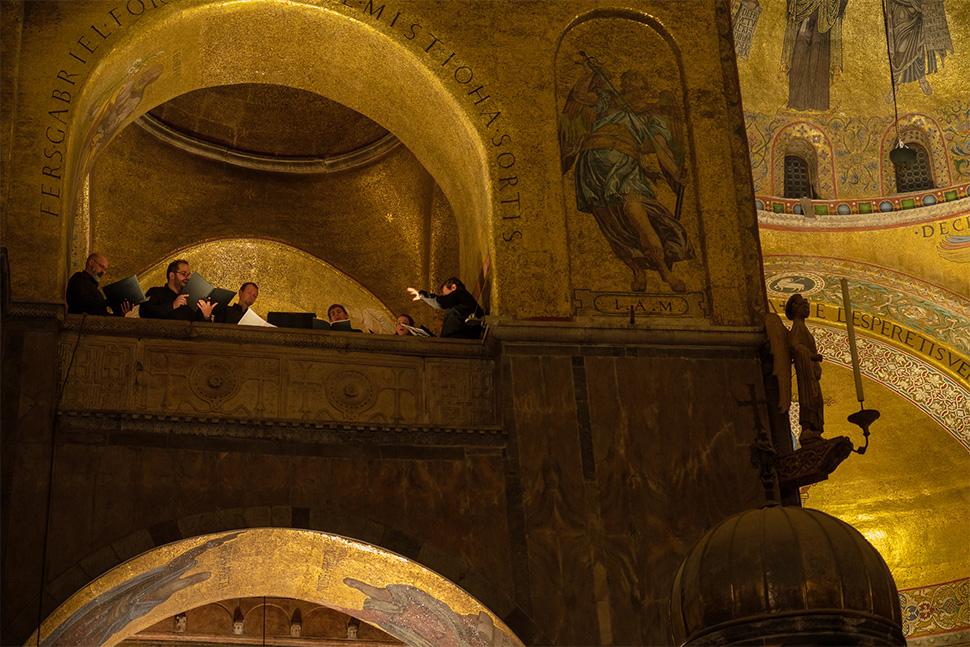The perfect acoustics of the Cappella Marciana in the Basilica di San Marco provide the space for Il viaggio della voce, a site-specific composition for recorded voices commissioned by La Biennale to Christina Kubisch, the pioneer of German sound art, and formerly a professor at the Hochschule der Bildenden Künste in Saarbrucken, where she founded the first German department of audio-visual art. Electromagnetic induction, ultra-violet rays, solar energy: Kubisch is an artist interested in spatial listening outside the designated places that require a frontal relationship to the performance. Her works are the result of in-depth studies of the specificity of the chosen site. Thus the Cappella Marciana becomes the object of her research.
Fascinated by Renaissance and Baroque Venice towards which musicians converged from across Europe, Christina Kubisch wondered: “What would happen if those journeys took place again with today’s possibilities? If the Renaissance voices of the composers of San Marco returned to their native land but in a contemporary world?”. That was the starting point for Il viaggio della voce, the recorded voices of the San Marco singers, which Christina Kubisch carried as her own “baggage” all around Europe to dialogue with other spaces: “with churches, cloisters (and maybe even modern offices), where the pre-recorded sounds are diffused and re-recorded … bringing to life a “new abstract polyphony”. “Hence the journeys of the voice are not created on the computer using a digital programme, writes Kubisch, on the contrary, though certain electronic procedures might be necessary, it is a procedure of a moment over the course of time. It will take a long time. Long slow journeys, and few of them. Then all this material will return to Venice to San Marco to be diffused, alternating in concert with the “real” singing of Maestro Gemmani’s choir”.
Also included in the programme vocal works by Adrian Willaert and Andrea Gabrieli.
